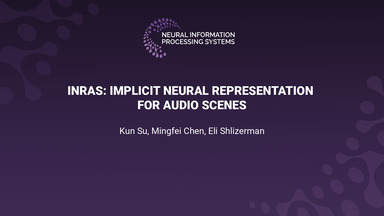Explainable Multi-Agent Recommendation System for Energy-Efficient Decision Support in Smart Homes
Dez 2, 2022
Sprecher:innen
Alona Zharova
Speaker · 0 followers
Annika Boer
Speaker · 0 followers
Julia Knoblauch
Speaker · 0 followers
Kai Ingo Schwina
Speaker · 0 followers
Über
Transparent, understandable, and persuasive recommendations support the electricity consumers’ behavioral change to tackle the energy efficiency problem. This paper proposes an explainable multi-agent recommendation system for load shifting for household appliances. First, we extend a novel multi-agent approach by designing an Explainability Agent that provides explainable recommendations for optimal appliance scheduling in a textual and visual manner. Second, we enhance the predictive capacity of other agents by including weather data and applying state-of-the-art models (i.e., k-nearest-neighbours, extreme gradient boosting, adaptive boosting, random forest, logistic regression, and explainable boosting machines). Since we want to help the user understand a single recommendation, we focus on local explainability approaches. In particular, we apply post-model approaches LIME (local, interpretable, model-agnostic explanation) and SHAP (Shapley additive explanations) as model-agnostic tools that can explain the predictions of the chosen classifiers. We further provide an overview of the predictive and explainability performance. Our results show a substantial improvement in the performance of the multi-agent system while at the same time opening up the “black box” of recommendations. To show the pathway to positive impact regarding climate change, we provide a discussion on the implications and scaling potential of the suggested approach. For instance, we show that 2 GWh of electricity (that corresponds to 0.87 kilotons of CO2 emissions) could be saved in 2023 in Germany when utilizing our approach. In 2026 the savings would be 5 GWh of electricity and 2 kilotons of CO2 emissions.Transparent, understandable, and persuasive recommendations support the electricity consumers’ behavioral change to tackle the energy efficiency problem. This paper proposes an explainable multi-agent recommendation system for load shifting for household appliances. First, we extend a novel multi-agent approach by designing an Explainability Agent that provides explainable recommendations for optimal appliance scheduling in a textual and visual manner. Second, we enhance the predictive capacity…
Organisator
NeurIPS 2022
Account · 962 followers
Gefällt euch das Format? Vertraut auf SlidesLive, um euer nächstes Event festzuhalten!
Professionelle Aufzeichnung und Livestreaming – weltweit.
Freigeben
Empfohlene Videos
Präsentationen, deren Thema, Kategorie oder Sprecher:in ähnlich sind
INRAS: Implicit Neural Representation for Audio Scenes
Watch later
Kun Su, …
Total of 0 viewers voted for saving the presentation to eternal vault which is 0.0%
ViSioNS: Visual Search in Natural Scenes Benchmark
Watch later
Fermín Travi, …
Total of 0 viewers voted for saving the presentation to eternal vault which is 0.0%
Deterministically Constrained Stochastic Optimization
Watch later
Total of 0 viewers voted for saving the presentation to eternal vault which is 0.0%
Effective Backdoor Defense by Exploiting Sensitivity of Poisoned Samples
Watch later
Weixin Chen, …
Total of 0 viewers voted for saving the presentation to eternal vault which is 0.0%
Computationally Efficient Horizon-Free Reinforcement Learning for Linear Mixture MDPs
Watch later
Dongruo Zhou, …
Total of 0 viewers voted for saving the presentation to eternal vault which is 0.0%
Label-invariant Augmentation for Semi-Supervised Graph Classification
Watch later
Han Yue, …
Total of 0 viewers voted for saving the presentation to eternal vault which is 0.0%





